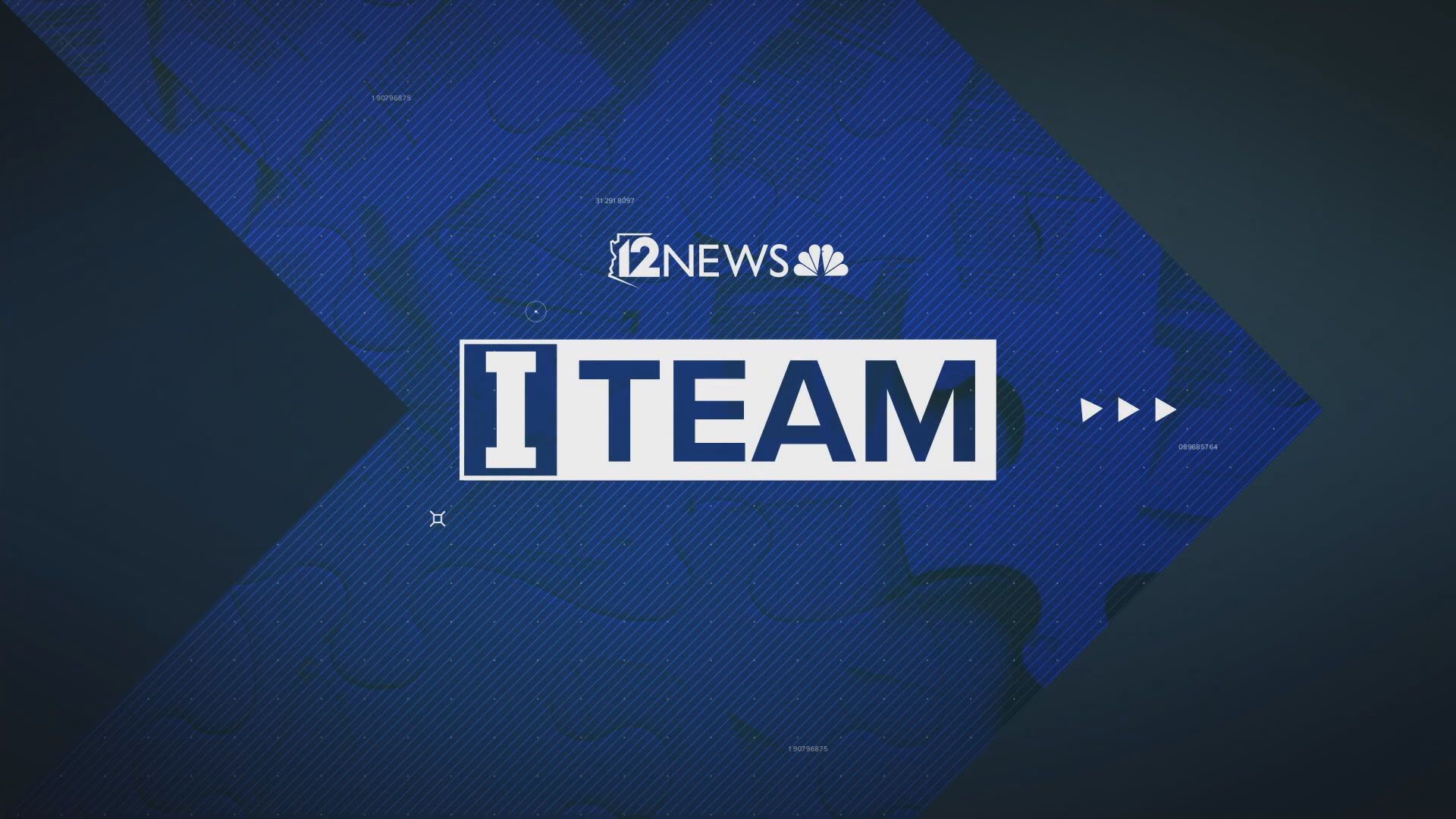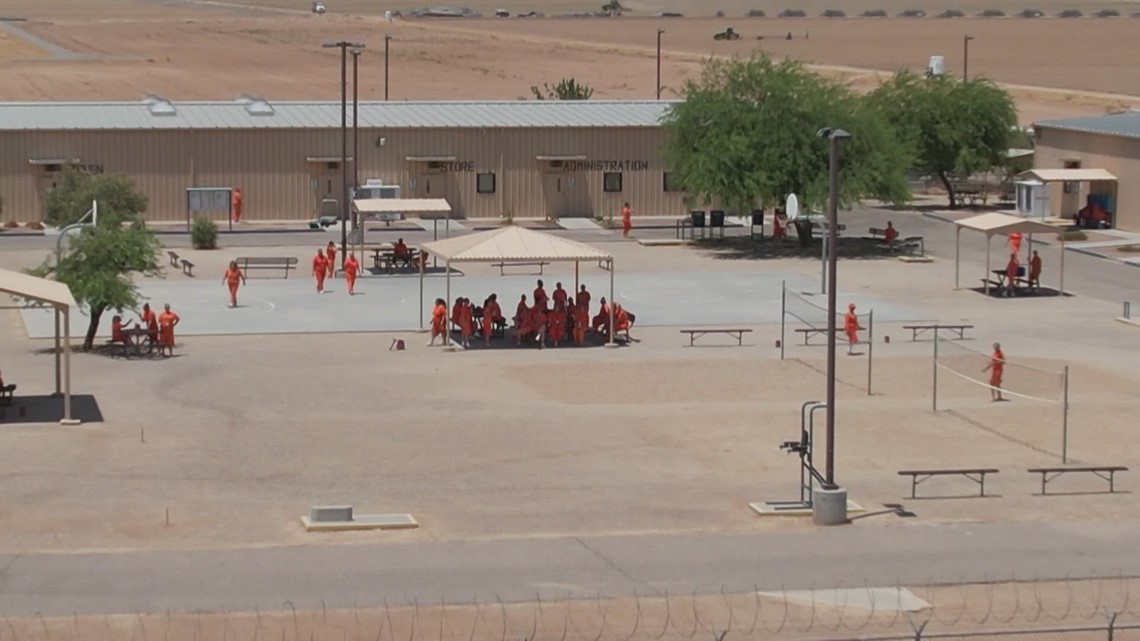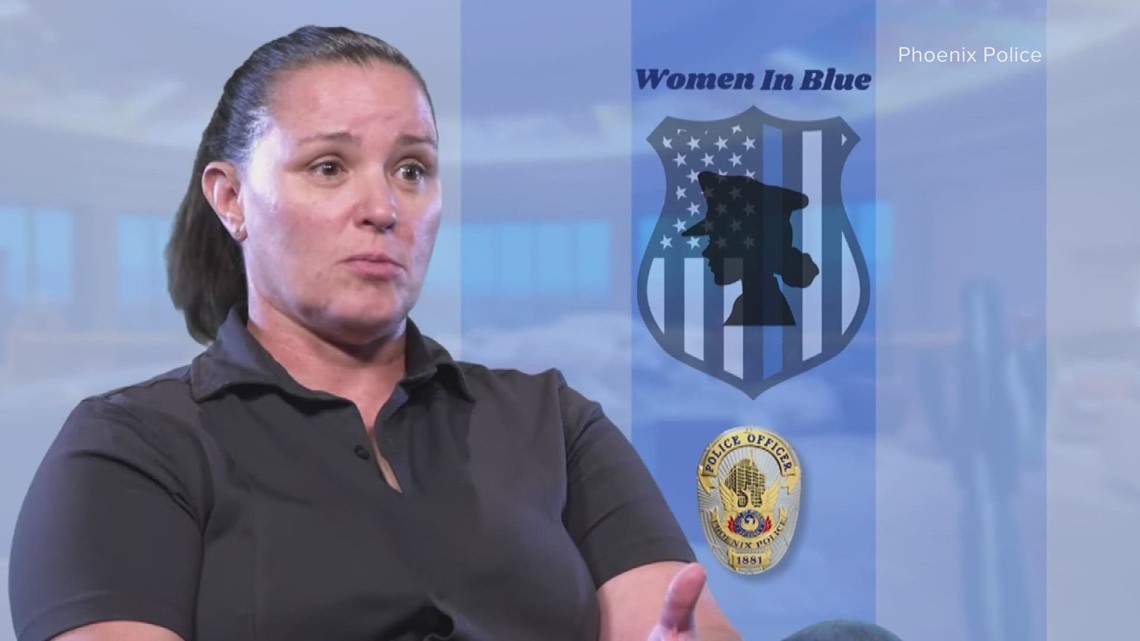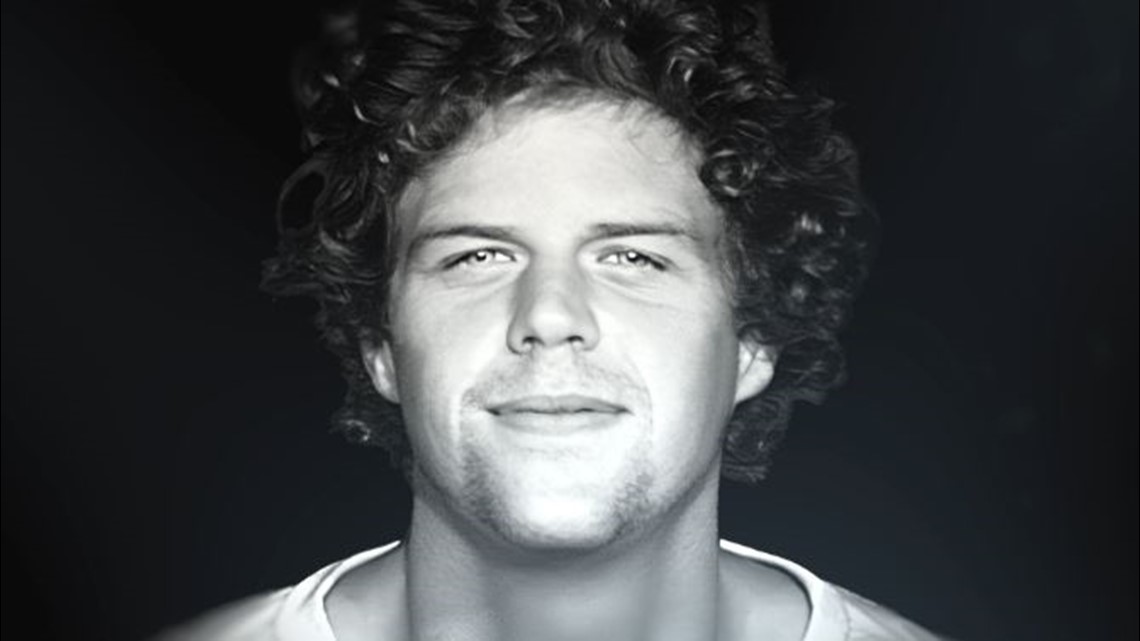I-Team 2023: Investigations support consumers, hold the powerful accountable and expose waste, fraud and abuse
12News Presents: I-Team 2023 is a special report that looks back on some of the biggest investigations from 12News journalists this year.

From consumer complaints of shoddy work on brand new homes to a widespread vulnerability that enabled some rehab companies to defraud the state, the team of journalists at 12News worked to investigate those issues that our community said went overlooked and underreported.
This special report includes some of the biggest stories the I-Team covered in 2023.
Chapter 1 Quality Control: New home fixer upper
From the outside, the newly constructed homes in Phoenix-area suburbs looked like the perfect places to call home. On the inside, new owners complained of rat infestations, holes, cracks and health hazards in suburbs all around the valley.
Investigative journalist Bianca Buono spoke to dozens of new homeowners, including retirees and first-time buyers to understand what challenges they face once taking the keys to their new kingdoms.
Key findings:
- Resident complaints: These spanned from cosmetic issues to structural concerns and even carbon monoxide risks. Often marked with blue tape, deficiencies in homes have remained unaddressed for weeks, or even months until this reporting
- A boomtown: The Phoenix metro-area continues to see a rise in new home builds, and one suburb is outpacing the rest. The Town of Maricopa, where Meritage, D.R. Horton and Richmond America communities are located has experienced explosive growth. The population has increased 42 percent since 2010, and city records show thousands of housing units are in currently in development.
- More investigations and state action: The Registrar of Contractors, the state agency that licenses and disciplines builders says its seen an increase in workmanship complaints concerning items not completed prior to move-in.
More on these stories:
- 'New home fixer-upper': Residents of new Maricopa development say homes are riddled with problems
- 'I bought a new house. I wanted new': Residents in new Goodyear development say homes are riddled with problems
- Homes keep getting built in Maricopa -- even as complaints about their quality grow
- 'There are mice in your couch': Occupants of new Maricopa homes frustrated with ongoing issues
Here’s how to contact the Registrar of Contractors to file a complaint online.
Chapter 2 Hot Mess: Extreme heat recorded inside Perryville Women’s Prison
During the record-breaking heat wave in July, inmates at Perryville Women’s Prison in Goodyear said they were suffering from the lack of air conditioning indoors. Complaining of indoor temperatures reaching over 100 degrees, inmates compared cells to “concrete coffins” and said the prisons were not addressing the extreme temperatures.
The I-Team began reporting on the conditions and took inmate concerns to the newly appointed Arizona Department of Corrections, Rehabilitation and Reentry Director, Ryan Thornell. Within a week of that interview, the Perryville Prison warden stepped down from her post, the department of corrections issued new heat relief measures, including providing ice and misters outdoors, and later released the temperature logs that confirmed inmate complaints.


Key findings:
Every single day from July 17-31, certain cells at Perryville prison were higher than 95 degrees.
On 11 of those days, the correction department’s own records show some cell blocks were documented in the triple digits
The highest indoor temperature recorded at Perryville Prison was 109 degrees on July 26.
More on these stories:
- 'Concrete coffins': Cooling systems fail at Perryville prison in Goodyear amid record heat wave
- Arizona Corrections Director responds to heat concerns at Perryville prison
- Perryville's warden steps down amid extreme heat problems at the prison
- Former inmate describes the heat, 12News asks the governor if 100 degree temps are “acceptable”
- ‘They’re allowing people to suffer’: Cells reached 100+ degrees on multiple days in July at Perryville prison
To date, the department has not installed new air conditioning units in the buildings at Perryville that currently do not have them. The I-Team continues investigating extreme temperatures in Arizona prisons, the department’s responses to maintenance requests and preparations for next summer.
Chapter 3 Reckless Rehabs: Widespread medicaid fraud suspected inside unregulated sober living homes
For more than a year, journalists at 12News have been investigating the complaints of residents, family members and neighbors of sober living homes across Arizona that are suspected of defrauding the state’s Medicaid system.
Last December, 12News journalist Chase Golightly interviewed two women who said that white vans picked up their relatives from tribal land in Arizona to bring them to sober living homes in Phoenix. They said their relatives were promised rehab services but were instead offered alcohol and had access to drugs.
By January, Golightly spoke with FBI Special Agent Antoinette Ferrari who investigates healthcare fraud and financial crimes. She said the scheme, targeting Native Americans, was putting them in dangerous situations.
“They are not getting the services for mental health illnesses or substance abuse that they actually need to be getting," Ferrari said. Instead, they’re being used to bill the state Medicaid department in what the FBI believes is a highly lucrative scheme.
“We're talking about millions that have gone out," Ferrari said.
In May, the Arizona Governor, Attorney General, the director of the state’s Medicaid program, and tribal leaders met to announce investigations into more than one hundred companies accused of committing Medicaid overbilling among other allegations of fraud.
Throughout the year, the number of companies facing those allegations would continue to grow, as the I-Team continued receiving complaints from the public and community leaders on the widespread impact that continues today.
More on these stories:
- FBI: Millions given to illegitimate rehab homes in the Valley targeting Indigenous people
- Arizona cutting off funding to over 100 fraudulent medical providers
- 'Trafficking is probably a good word': Eloy motel accused in AHCCCS fraud case
- Native American man found dead outside of a Phoenix group home, home later shut down accused of defrauding AHCCCS
- Arizona is in the middle of a massive crackdown on fraudulent health care providers. These protesters say they were caught in the crossfire.
- Investigation into group home leads to fraud allegations, health department citations after former residents died
How to find a safe group home:
While there are many concerns and ongoing investigations into sober living homes and some rehab facilities, there are still resources for those who need help getting sober.
Nikki Fordey is a licensed substance abuse counselor, licensed social worker and has a degree in psychology, a master's degree in public policy and another in clinical social work, and she had this advice:
- Get a professional evaluation. Finding a good rehab program starts with getting an evaluation from a licensed professional to determine the level of care an individual may need
- Background check the facility. Fordey suggests checking for accreditation through The Joint Commission and checking AZ Care Check to find out whether the company is licensed with the state health department and whether it has been inspected. Arizona state law does not require a license to operate a sober living home.
- Ask questions. Fordey suggests asking the facility for details about their treatment plans, how they align with personal goals and what they do if someone in the program relapses.
In 2024, some stakeholders will look to the legislature to make changes that could impact sober living homes, the state Medicaid program and reporting requirements for patients in group homes. 12News will continue to report the latest developments.
Chapter 4 Disability Delays: Officer shot in line of duty fights for changes in police disability
Phoenix Police Officer Trisha Eskridge had worked for the department for 22 years when she was shot in the line of duty February 2022. She was one of the first responders to a hostage situation and was working to rescue a baby from the scene when she was hit.
The department praised her heroic efforts, honoring Eskridge with the Act of Valor Award, but months after the shooting, Eskridge continued to struggle. Her injuries caused lasting damage, and her inability to work was causing was causing significant financial challenges.
Those challenges continued becoming more difficult as she fast realized her injuries – while life changing to her – may not be considered “catastrophic” to the pension board.
And that designation of “catastrophic” disability would mean a difference of 40 percent of her compensation.


Key finding:
- Catastrophic disability covers 90 percent of a retired officer or firefighter’s salary for a period of time. It is the maximum benefit the city offers. Accidental disability covers 50 percent.
- Catastrophic disability has only been available to Phoenix firefighters and police officers since 2004, and since then, nine “catastrophic” disability claims have been approved
- These cases hinge on the key issue: what is the definition of “gainful employment.” In Eskridge’s appeal in November, the pension board determined to have a working session to discuss the term.
Read the full series here:
- Phoenix officer shot in the line of duty waiting for benefits
- She was shot carrying a baby to safety and lost most use of her left arm. The City of Phoenix ruled she'll only get a portion of a disability claim
- They were injured in the line of duty. Now 2 retired officers talk about life after injury
- Local lawmaker wants change
- Phoenix police officer shot in the line of duty still fighting for maximum disability benefits
Trisha Eskridge continues to appeal the decision and her case has led some members of the board and even the state legislature to agree to look for possible amendments to the current disability retirement structure. The I-Team will continue to investigate how Eskridge’s case unfolds in 2024, and what – if any – changes may come to the pension program.
Chapter 5 More from the I-Team
Arizona still considers sex offenders lower risk if the victim is a girl
In 2023, the I-Team revealed a decades-old system that considers sex offenders a lower risk if the victim is a girl.
In February, Dawn King said that the man convicted of sexually abusing her daughter was not included on the public sex offender registry, and she couldn’t understand why.
I-Team reporter Bianca Buono obtained a copy of the Navajo County Sheriff’s Office sex offender classification assessment, which was used to classify the man as a level one sex offender, and therefore not required to be listed on the public-facing sex offender registry.
The assessment considers a list of risk factors and assigns points to things like the number of offenses, the perpetrator’s criminal history and severity of the abuse, when determining what level to designate a convicted sex offender. The assessment also considers the gender of the victim.
If the victim is a girl, the sex offender gets zero points added to their score. But if the victim is a boy, the sex offender gets three points added.
This assessment has been effective in Arizona since at least 2002.
His mom thought he was at a behavioral health hospital. Instead, he was dead at a Phoenix bus stop
On the surface, it seemed like a heat-related death.
Bryan Rogers, 38, passed out at a bus stop near 18th St. and Camelback Road in Phoenix on a triple-digit August day.
But his mom knew something was off.
“I want people to know my son’s life mattered,” Heather Williams said. “He was loved. He was wanted.”
I-Team reporter Erica Stapleton sought to find out how Bryan Rogers died at the bus stop, when his mother believed he was in a hospital, receiving services for his mental illness.
The 12News I-Team uncovered that Bryan was supposed to be getting help before he died. His case, the latest to expose gaps in the mental healthcare system some advocates and lawmakers have worked for years to try and close.
RELATED: His mom thought he was at a behavioral health hospital. Instead, he was dead at a Phoenix bus stop


Power and Influence: investigating utility companies and the commission that oversees them
This year, APS is requesting a rate increase and 12News journalist Joe Dana has been following the case throughout the summer. He’s hearing from consumers already concerned that they are paying more than they would with SRP.
APS says it's unreasonable to compare the companies, but consumers demand APS prove its higher rates are justified even as the utility requests another rate increase.
There are also transparency concerns at the Arizona Corporation Commission which will decide the rate case.
Arizona’s Utility Commission has no way to enforce its ethics code
When newly elected Arizona Corporation Commissioner Kevin Thompson traveled to New York to meet with Wall Street investors in January, Thompson discussed several topics related to Arizona’s utility regulatory environment while overseeing two open rate cases.
He tweeted about the trip after he returned.
What Thompson likely did not realize at the time was the cascade of events that would follow, including a renewed call by one of Thompson’s fellow commissioners in October to revamp the commission’s code of ethics.
12News asked Commission Chair Jim O’Connor if he planned to put the ethics item on a future agenda.
“There is no plan to do any action on anything,” O’Connor said. “January would be the earliest we would get to it. It’s not like there’s this urgency. We’re not going to cancel Christmas.”
12News will continue to report on these developments as they continue into 2024.
Contact the I-Team
For tips on these or any other stories, you can reach the I-Team:
EMAIL ITEAM@12NEWS.COM
TEXT: 602-444-1212
I-TEAM INVESTIGATES
Award-winning journalism and fact checking from the 12News investigation team.


